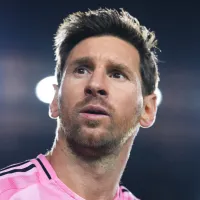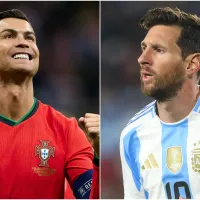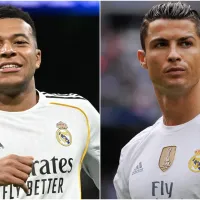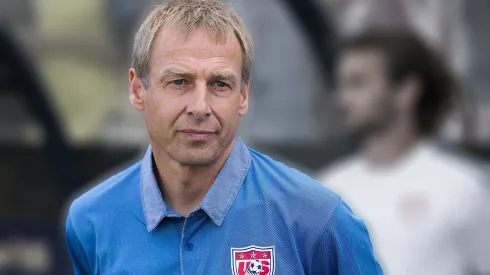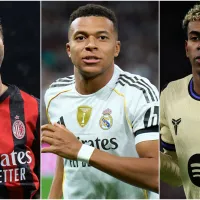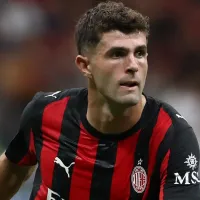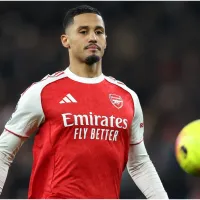
A crackerjack of a match happening Oct. 10 inside Pasadena’s historic Rose Bowl is, of course, the big fire sucking all the oxygen from our domestic soccer “room.” Meetings with a bitter border rival will do that, you know, and US versus Mexico is practically a brand. (I forget, does the hashtag dosacero take an exclamation point, or no?)
Less heralded is the United States’ quest for 2016 Olympic qualifying, which begins on Thursday but climaxes mere hours before events inside the Rose Bowl. The “money matches,” if Andi Herzog’s team can get there, that is, are Oct. 10 inside Real Salt Lake’s Rio Tinto Stadium.
So perhaps it’s no surprise that as the United States enters matches of equal consequence – maybe the Olympic qualifying is even more so due to longer-lasting implications – the drive for Rio 2016 is getting “also in the news” treatment. It’s an under-23 tournament, after all, less sexy and lesser blessed of star appeal.
Too bad, in a way; there’s a lot riding on this road Rio de Janeiro, too.
We’ll just skip past CONCACAF’s inexplicable decision to hold two such momentus events on the same day. With all its trouble – bribery, corruption, fraud … pretty much the whole white collar crime shebang – you would think CONCACAF would create the biggest possible window for media focus on actual matches (as opposed to the greedy shenanigans that now have a bunch of former movers and shakers in jail or banned). But, it’s quirky CONCACAF, so here we are.
So both “big days” fall on Oct. 10. We all know, the result in the Rose Bowl that day will be a referendum on Jurgen Klinsmann. Seems to be a lot of that going around, eh?
To wit: what happens that day in suburban Sandy, just outside Salt Lake City, will also be a referendum. And there is a wild, wild degree of swing as to which way this thing could go.
This could turn into Klinsmann’s shining moment. He’s had a few exalted days in four-plus years in charge. A restorative victory in the unforgettable Snow Clasico, a subsequent, helpful result days later in Mexico, the World Cup win over Ghana and qualifying for second round in the 2014 World Cup are his signature achievements. A win over Mexico inside the Rose Bowl would be one-half of another.
SEE MORE: Overrated/underrated – the truth about the value of the Confederations Cup.
If the United States also qualifies that day for Rio 2016, it might well be hailed as Klinsmann’s grandest day yet. Herzog is his hand-picked choice to guide the Olympic team; in Klinsmann’s dual role as U.S. technical director, he deserves credit/responsibility, depending on how things go.
Of course, the darker side of this wide avenue goes as such: Mexico prevails in the Rose Bowl to claim that coveted 2017 Confederations Cup berth, and the United States stumbles in Utah (again, assuming Herzog’s team gets there). Then, everyone around U.S. Soccer is left to explain away Olympic qualifying failure for a second consecutive time.
If that sounds ridiculous, then perhaps you don’t remember events of a certain, forlorn night in Nashville four years back, when the previous Olympic men’s qualifying attempt unraveled so spectacularly in a draw with El Salvador. Qualification for the 2012 Olympics in London had been presumed, especially as Caleb Porter’s team was the bully in such a lightweight foursome (alongside Cuba, Canada and El Salvador). Somehow, they fumbled it all away: the group of life; home field advantage throughout the tourney; all of it. They didn’t even advance past group play.
Fury and embarrassment ensued (even from Klinsmann). There were whispers then that Klinsmann had winced at the choice for under-23 coach; Porter had coached only collegians at the time. It was early days for Klinsmann’s time in charge, so it wasn’t his choice to make. Therefore, limited blame fell on U.S. Soccer’s top coaching figure for that particular little domestic soccer disaster.
SEE MORE: Who is Lynden Gooch? Another US prospect on Premier League radars.
Klinsmann’s own coaching choices are no stranger to scrutiny. The timing on that pre-World Cup house cleaning in 2014 left some wondering about the stability and planning – uh, there is a blueprint here, right? – ahead of the only real moment that mattered for Klinsmann’s initial three years in charge.
This one will be different. Believe it. Klinsmann himself lamented the vast opportunities lost by not advancing into the 2012 Olympics. Big clubs were there to kick the tires on young players, after all, and the chance to steel themselves in a high-pressure cauldron went to Mexicans and Hondurans instead.
Not to paint too bleak a picture; no need to hover over the panic button just yet. It’s just that the consequence of failure is so high. Well, that and the unforeseen, improbable, raging embarrassment of four years ago.
The United States should make it to Rio, with its road starting Thursday in Group A action. Up first is Canada, then a date against Cuba, both at Sporting Park outside Kansas City. Herzog’s team finishes group play against Panama at DSG Park outside of Denver.
Two teams from each group advance into the telling semifinals at Rio Tinto. Winners that night qualify for the games of Rio. The third-place team gains temporary reprieve, facing South American runner-up Colombia in a playoff next March.
As for Herzog’s 20-man selection, the midfield looks particularly capable. Fulham’s Emerson Hyndman, Columbus’ Wil Trapp and Arsenal’s Gedion Zelalem (currently on loan to Scotland’s Rangers) give Herzog lots to build around. Behind them, the Red Bulls’ Matt Miazga can build on a breakout year where he has become a trusted center back for a team leaning towards a possible Supporters Shield.
SEE MORE: One of the US’s best goalkeepers is not getting a chance at the starting job.
A lot will be expected of Jordan Morris, the Stanford kid who galloped heroically toward goal last April in San Antonio, scoring in the full national team’s win over archrival Mexico.
The roster certainly isn’t perfect; as the tournament begins on non-FIFA international dates, clubs are not obligated to release players, leaving Herzog and his fellow under-23 coaches in a bit of a pickle. Best case in point is Rubio Rubin. Herzog would love to have the versatile forward, who plays for Utrecht in the Dutch Eredivisie. Dutch clubs have a history of reticence in releasing U.S. players and, sure enough, the highly regarded Oregonian will remain back in the Old World for this one.

